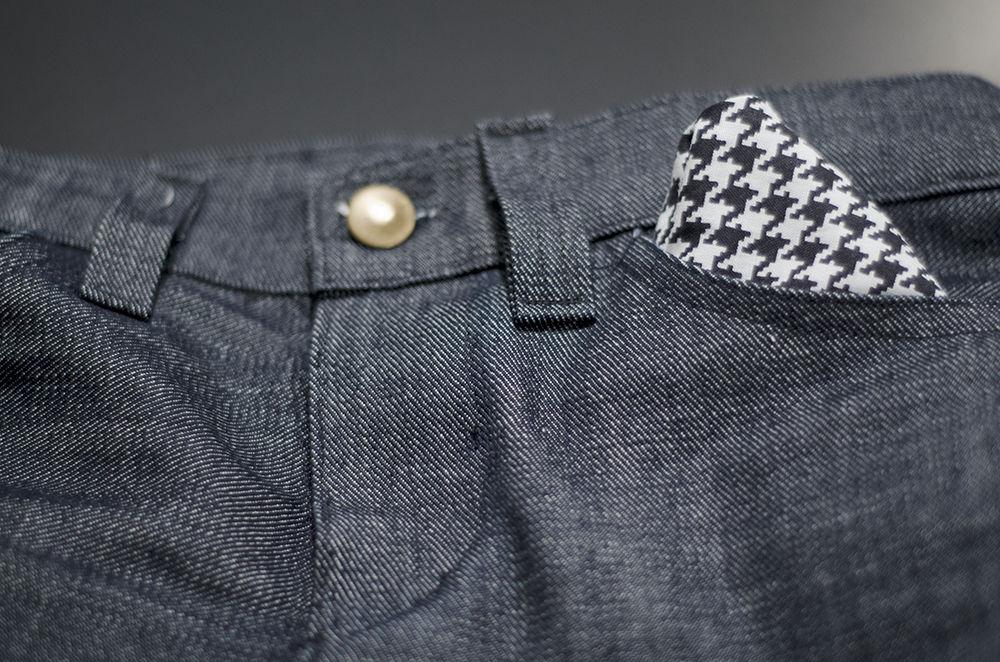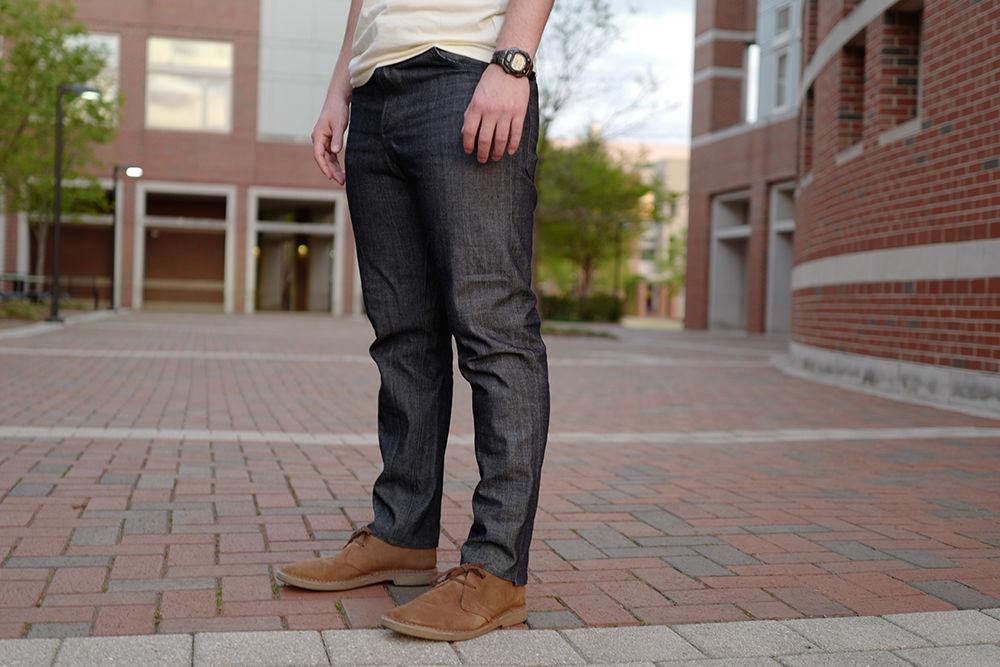Most people have experienced the problem. After spending time searching through different cuts, styles and sizes, you finally accumulate an armful of different jeans to take back to the dressing room. The first pair you try on is too tight in the waist and too loose in the legs, the second pair won’t slide past your knees and the third gaps in odd places and is on the verge of becoming a pair of capris. After trying on every pair, you find that none fit quite the right way, so you leave the store hoping for better luck with different brands only to find that the sizes fit completely differently and still not the way you want.
Unable to find a pair of perfectly fitting jeans, you either leave the store empty-handed and disappointed or settle for a pair that you have to cuff or wear a belt with every time you slip them on.
Though jean shopping has the stigma of being exasperating and even impossible at times, five NC State seniors believe there is a solution to the problem, and they are working to bring that solution to the public by turning their senior project into a company called Kast Clothing after graduating in May.
Luke Smith and John Huffman, both studying mechanical engineering, Zach Hannum, studying electrical engineering, Samuel Eddy, studying computer engineering, and Jeremy Jordan, studying material science engineering, have developed a method that uses 3-D body-scanning technology to create custom-fit jeans that are then shipped directly to the buyer.
“Our goal is to create simple, classic styles that are powered by technology and offer new materials in a streamlined and affordable way,” Smith said.
The five students, though they acted like old friends, met through the Engineering Entrepreneurs Program (EEP) last semester. The program has a strong focus on multidisciplinary studies and can take the place of the traditional senior design project that all senior engineering students are required to complete.
Traditional senior design projects are randomly assigned to students, and the students do not get to choose who they work with.
“With EEP, you have the freedom to create something,” Huffman said. “You get to pick your team and project within reason.”
The year-long program encourages students to seek creative solutions to real life problems by using what they have learned throughout their studies at NC State.
“You get to go out into the world and find a problem, find 200 problems and choose one that looks interesting and find a solution,” Jordan said. “First, you have to validate that it is a problem and that people want it to be solved, and then you develop a solution.”
The team of five students originally developed a list of over 200 problems and eventually narrowed the list down to four solid ideas. The students then established different criteria, including what they felt offered the largest opportunity and paying point and ultimately decided to pursue the custom-jean project.
Though none of the students are textile majors, they have applied their knowledge to find a creative solution to what many would consider a common and frustrating clothing problem.
“I think that our non-textile backgrounds actually allow us to look at and approach the problem in a new way,” Huffman said.
The students have all created their own prototyped jeans and the process took them each about eight hours, but as Smith pointed out, there is a definite learning curve “especially when it comes to sewing.”
Though the process itself is time consuming, the students are devoted to creating truly customized jeans to “serve customers who slip through the cracks and don’t fall into the average sizes that most stores keep in stock,” Eddy said.
The students have each devoted 25 to 30 hours of work each week to developing the project and starting the process of transitioning it to a company after graduating. They are hoping to begin selling small preorders to interested individuals in mid-June.
The process will start by capturing an individual’s measurements with a 3-D body scan at a location in Cary. The students will then upload the measurements onto the Kast Clothing website where the individual can choose between different fits, patterns, colors and even threads for the jeans.
Despite the highly customized process, the students believe that each pair of jeans will sell for less than $100.
“Using technology puts us at an advantage,” Smith said. “And we are also sourcing all of our materials in the U.S., which will help us keep shipping costs down.”
Though the project is less than a year old, the students are optimistic about its future as a company, and Smith and Hannum plan to devote full-time hours to the company after graduating.
“Without a doubt, the end goal for me is to run a business or be associated with a start-up,” Smith said.
On the other hand, Huffman had no intention of pursuing entrepreneurship before becoming involved in the project.
“I was just going to go into the engineering industry and put in my 20 to 30 years and then retire,” Huffman said, “But this year I fell in love with the concept of entrepreneurship and with the project itself.”
Though each of the five students had different interests, experiences and post-graduation plans before the project, none of which connected to textiles, they all found a similar interest in solving a problem while simultaneously putting a modern spin on a classic clothing item.
“Bringing technology to classic styles, changing shopping and making jeans for everyone is something we’ve all been able to get behind,” Huffman said. “And we’re going to find a way to make it happen.”
If you want to learn more about Kast Clothing or receive updates about the company, you can visit its website at www.kastclothing.com or follow it on Twitter, Facebook and Instagram.
Kast Clothing offers highly customizable jeans by capturing an individual’s measurements with 3-D body scans. Luke Smith, John Huffman, Zach Hannum, Samuel Eddy and Jeremy Jordan started the company as part of their engineering senior design project.














